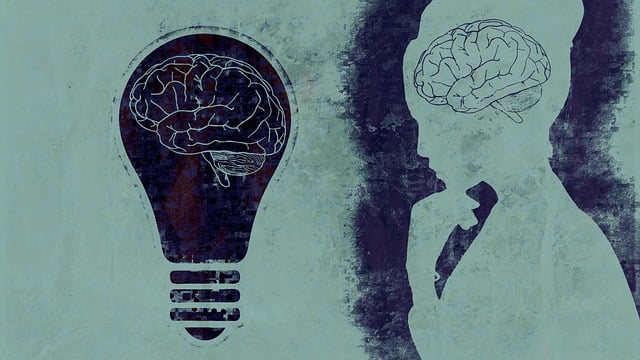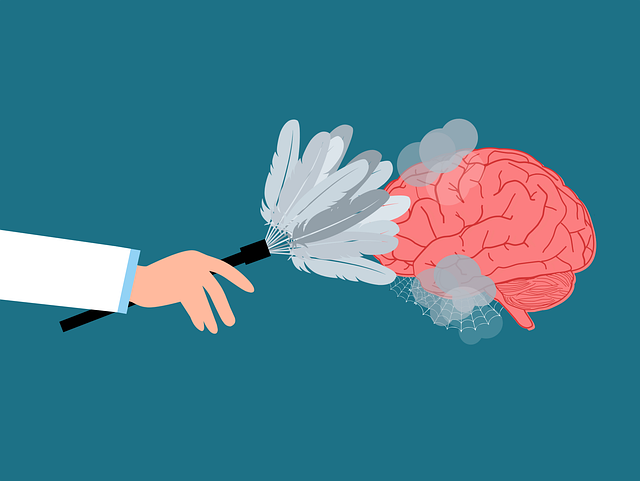Aurora Codependency Therapy is a comprehensive approach to mental illness treatment, focusing on empowering individuals through education and stigma reduction. By addressing complex relationships, historical trauma, and cultural competency, it offers holistic support for improved treatment outcomes. This guide provides steps to navigate the healthcare system, emphasizing research and consistency in treatment plans. Building a strong support network and integrating coping strategies are key for long-term management and relapse prevention. Aurora Codependency Therapy equips individuals with tools for proactive mental health maintenance.
Mental illness diagnosis and treatment can be a confusing, overwhelming journey. This comprehensive guide aims to demystify the process, offering valuable insights into navigating mental health care effectively. We explore key aspects, including understanding various mental health conditions, delving into the benefits of innovative therapies like Aurora Codependency Therapy for enhanced treatment, and providing practical steps for accessing quality care. Additionally, we discuss building supportive networks, long-term management strategies, and preventing relapse for a holistic approach to recovery.
- Understanding Mental Illness: Demystifying Diagnosis
- The Role of Aurora Codependency Therapy in Treatment
- Navigating the Healthcare System: A Step-by-Step Guide
- Building a Supportive Network for Recovery
- Long-Term Management and Relapse Prevention Strategies
Understanding Mental Illness: Demystifying Diagnosis

Understanding Mental Illness is a crucial step in navigating diagnosis and treatment. It’s essential to demystify mental health conditions, breaking down the stigma that often surrounds them. Many individuals face challenges in recognizing their symptoms or understanding their condition due to a lack of awareness and education. This barrier can significantly impact their willingness to seek help.
At Aurora Codependency Therapy, we believe knowledge is empowering. Our mission is to support clients on their journey towards healing by providing resources and guidance. By fostering Healthcare Provider Cultural Competency Training and promoting Mental Illness Stigma Reduction Efforts, we aim to create a supportive environment where individuals feel comfortable discussing their mental health concerns openly. Through education, we can encourage early intervention and effective treatment plans tailored to each person’s unique needs.
The Role of Aurora Codependency Therapy in Treatment

Aurora Codependency Therapy plays a pivotal role in navigating mental illness treatment by addressing complex interdependent relationships and behaviors that often contribute to an individual’s struggle. This therapeutic approach recognizes that mental health challenges are not solely inherent to an individual but are deeply influenced by their social environment, including family dynamics, friendships, and support systems. By focusing on these connections, Aurora Codependency Therapy empowers individuals to cultivate healthier patterns of interaction, fostering self-care routine development for better mental health.
The process involves exploring historical trauma and its impact on current relationships, a key aspect that many mental health services may overlook. This holistic perspective is crucial in providing comprehensive trauma support services, ensuring individuals receive the care they need to heal. Moreover, it emphasizes the importance of healthcare provider cultural competency training, enabling professionals to offer tailored support that respects diverse backgrounds and experiences, ultimately enhancing treatment outcomes.
Navigating the Healthcare System: A Step-by-Step Guide

Navigating the healthcare system for mental illness can be a daunting task, but with a structured approach, individuals can find the support they need. Here’s a step-by-step guide designed to help you on your journey towards healing and recovery.
Begin by researching and identifying reputable mental health professionals in your area, such as those offering Aurora Codependency Therapy. Look for therapists who specialize in your specific condition and align with your preferences regarding therapy types. Once found, schedule initial consultations to gauge compatibility and ensure the therapist understands your unique needs. During these meetings, be open about your symptoms, concerns, and goals, fostering a safe space for honest communication. After selecting a therapist, create a consistent treatment plan that works around your schedule, prioritizing self-care and mental wellness. Incorporate Mind Over Matter principles to empower yourself through positive thinking and coping strategies. Regularly assess your progress, adjusting the plan as needed with guidance from your therapist. Remember, seeking help is a courageous step towards reclaiming emotional intelligence and fostering mental health.
Building a Supportive Network for Recovery

Building a Supportive Network for Recovery is a pivotal step in navigating mental illness diagnosis and treatment. This includes fostering strong relationships with family, friends, therapists, and support groups. At Aurora Codependency Therapy, we understand that surrounding oneself with a compassionate and understanding network can significantly enhance recovery outcomes. By integrating effective communication and emotional expression into these relationships, individuals can cultivate an environment conducive to healing.
A robust support system goes beyond immediate loved ones; it includes professionals who specialize in mental health care. Encouraging open dialogue about Anxiety Relief and Emotional Well-being Promotion Techniques within this network is vital. Through shared experiences and collaborative problem-solving, individuals can develop coping strategies tailored to their unique needs. Self-Care Routine Development for Better Mental Health becomes more manageable when guided by a supportive community, ensuring that recovery remains a sustainable journey.
Long-Term Management and Relapse Prevention Strategies

Effective long-term management and relapse prevention are pivotal components of mental illness navigation assistance. Beyond initial diagnosis and treatment, individuals often face the challenge of maintaining stability and preventing recurrent episodes. Aurora Codependency Therapy, for instance, offers valuable tools to address underlying codependency patterns contributing to mental health issues. By fostering healthier relationships and improving boundaries, this therapeutic approach equips individuals with coping mechanisms to navigate stressful situations proactively.
Integrating conflict resolution techniques and burnout prevention strategies for healthcare providers is crucial alongside these individual-focused practices. Cultural sensitivity in mental healthcare practice also plays a significant role, ensuring that care is tailored to meet the unique needs of diverse populations. Through a comprehensive approach combining evidence-based therapies, coping skills development, and culturally responsive care, individuals can develop lasting resilience and thrive with their mental health conditions over time.
Mental illness diagnosis and treatment can be a complex journey, but with the right tools and support, recovery is achievable. By demystifying the diagnosis process and understanding the available treatments, such as Aurora Codependency Therapy, individuals can make informed decisions about their mental health. Navigating the healthcare system effectively, building a strong support network, and implementing long-term management strategies are key to sustaining recovery. With dedication and the right resources, those facing mental illness can lead fulfilling lives.














